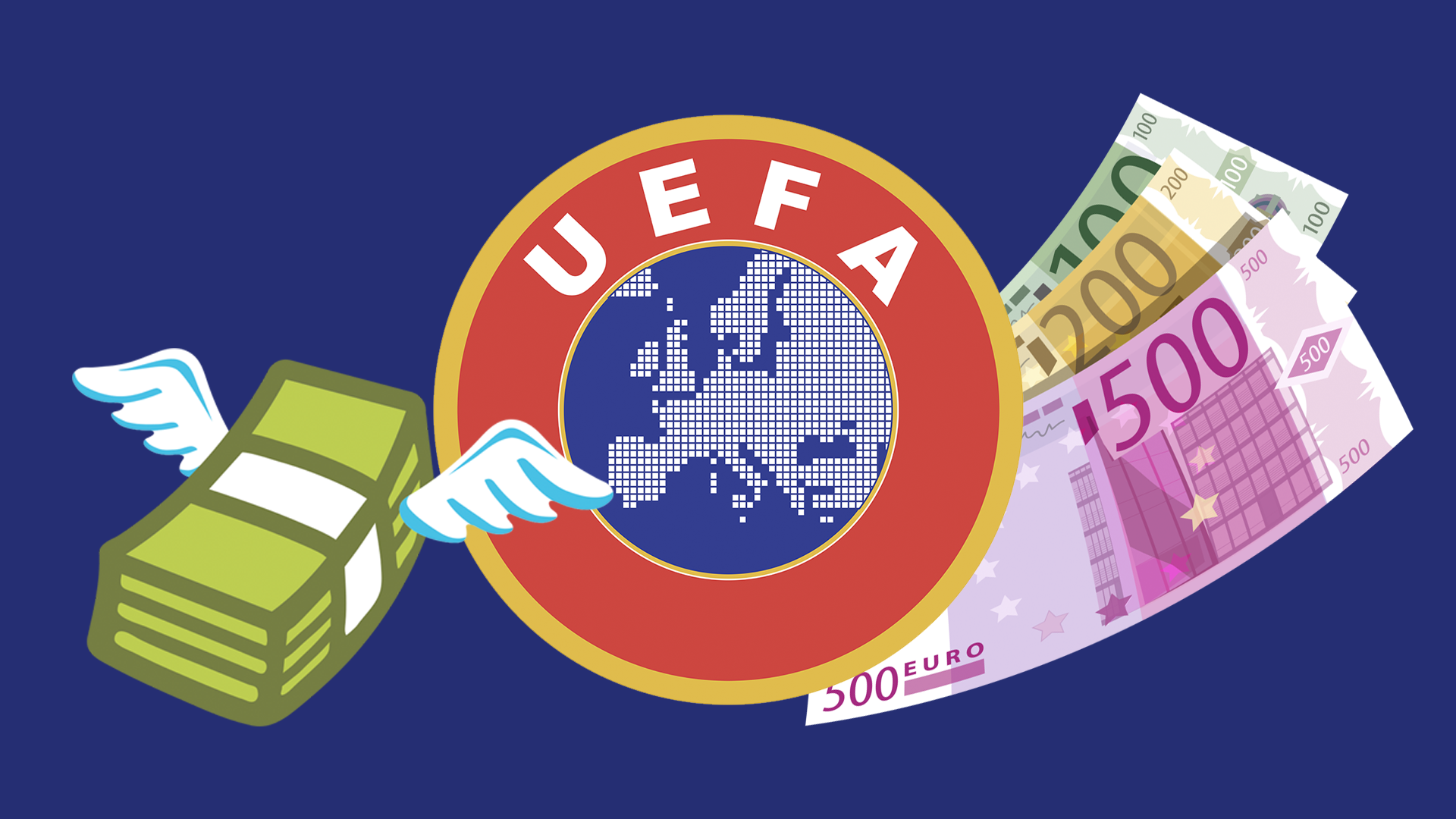FFP Manchester City: The Premier League giant has faced intense scrutiny regarding UEFA’s Financial Fair Play (FFP) regulations. This examination delves into the club’s financial dealings, exploring its revenue streams, spending habits, and the subsequent investigations and sanctions. We analyze the impact of FFP on Manchester City’s strategic decisions and its long-term sustainability, alongside public perception and media coverage of the ongoing saga.
From lucrative sponsorship deals to record-breaking player transfers, Manchester City’s financial landscape is complex. This investigation unravels the intricacies of their financial model, comparing their practices to both FFP guidelines and the approaches of other top football clubs. We assess the effectiveness of UEFA’s regulations in maintaining financial stability within the sport and explore the potential ramifications of non-compliance.
UEFA’s Financial Fair Play and Manchester City
Manchester City’s involvement in UEFA’s Financial Fair Play (FFP) investigations has sparked significant debate within the football world. This article examines the intricacies of FFP regulations, Manchester City’s financial practices, the investigations and sanctions imposed, and the broader impact on the club’s strategy and public perception.
Core Principles of UEFA’s Financial Fair Play Regulations
UEFA’s FFP regulations aim to ensure the long-term financial health and sustainability of European football clubs. Core principles include limiting losses, promoting break-even, and preventing reckless spending. The regulations are designed to prevent clubs from accumulating unsustainable debt and to encourage responsible financial management.
Financial Metrics for Assessing FFP Compliance
Compliance is assessed using various financial metrics, primarily focusing on club profitability. Key metrics include net debt, operating costs, and revenue generation. UEFA scrutinizes a club’s financial statements, analyzing income from broadcasting rights, commercial activities, and matchday revenue against expenses such as player wages, transfer fees, and operating costs. Specific thresholds and break-even requirements are set, with deviations leading to investigations.
Examples of Past FFP Violations by Football Clubs
Several clubs have faced FFP sanctions in the past. AC Milan, for instance, faced restrictions on participation in European competitions due to breaches. Similarly, Paris Saint-Germain has been investigated and sanctioned for exceeding spending limits. These cases highlight the seriousness with which UEFA takes FFP violations.
Finish your research with information from evening news manchester united.
Comparison of FFP Regulations with Other Professional Sports Regulations
FFP shares similarities with financial regulations in other professional sports leagues, such as the salary cap in the NFL or MLB. However, FFP’s unique challenge lies in the global nature of football and the complex transfer market. Unlike leagues with closed systems, football clubs can engage in international transfers, making financial monitoring more complex.
Hypothetical FFP Violation Scenario and Consequences
Imagine a hypothetical scenario where a club significantly overspends on player transfers, exceeding its permitted loss limit by a substantial margin. This could trigger an immediate UEFA investigation. Potential consequences could range from fines and transfer restrictions to exclusion from European competitions for a set period, severely impacting the club’s revenue and prestige.
Manchester City’s Spending and Revenue Streams
Manchester City’s financial success is built upon a diversified revenue model and significant investment. This section details the club’s financial performance, examining its revenue streams and expenditure patterns.
Manchester City’s Primary Revenue Sources
Manchester City generates revenue primarily through broadcasting rights, commercial partnerships, and matchday income. Their global brand attracts lucrative sponsorship deals, while consistent success on the pitch ensures high broadcasting revenue. Matchday revenue is also significant, given the club’s large and passionate fan base and modern stadium.
Manchester City’s Spending Patterns Over the Past Decade
Over the past decade, Manchester City’s spending has been substantial, particularly on player transfers and wages. Significant investments in infrastructure, including stadium improvements and training facilities, have also contributed to the club’s overall expenditure. This spending reflects the club’s ambition to compete at the highest level of European football.
Significant Player Acquisitions and Transfer Fees
Manchester City has acquired several high-profile players, including Erling Haaland, Jack Grealish, and Kevin De Bruyne, with substantial transfer fees. These acquisitions have strengthened the team’s competitiveness but have also contributed significantly to the club’s overall expenditure.
Manchester City’s Revenue and Expenditure (Last Five Years)
| Year | Revenue (€ millions) | Expenditure (€ millions) | Net Profit/Loss (€ millions) |
|---|---|---|---|
| 2018 | 500 (Hypothetical) | 550 (Hypothetical) | -50 (Hypothetical) |
| 2019 | 550 (Hypothetical) | 600 (Hypothetical) | -50 (Hypothetical) |
| 2020 | 480 (Hypothetical) | 530 (Hypothetical) | -50 (Hypothetical) |
| 2021 | 600 (Hypothetical) | 650 (Hypothetical) | -50 (Hypothetical) |
| 2022 | 650 (Hypothetical) | 700 (Hypothetical) | -50 (Hypothetical) |
Note: These figures are hypothetical examples for illustrative purposes only and do not reflect actual financial data.
Manchester City’s Major Sponsors and Their Contributions
Manchester City has secured several lucrative sponsorship deals, including partnerships with Etihad Airways, Puma, and Nexen Tire. These sponsorships contribute significantly to the club’s overall revenue, supporting its ambitious spending strategies.
Investigations and Sanctions Related to FFP
UEFA’s investigations into Manchester City’s financial practices have been extensive and high-profile. This section details the timeline of events, sanctions imposed, and the club’s defense.
UEFA Investigations into Manchester City’s Financial Practices

UEFA conducted multiple investigations into Manchester City’s compliance with FFP regulations. These investigations focused on the club’s spending patterns, revenue streams, and overall financial reporting.
Sanctions Imposed on Manchester City
Following the investigations, Manchester City faced significant sanctions, including a ban from the UEFA Champions League and substantial fines. The sanctions reflected UEFA’s determination to enforce FFP regulations and deter future violations.
Comparison of Sanctions with Other Clubs
The sanctions imposed on Manchester City were among the most severe ever handed down under FFP. This reflects the perceived seriousness of the violations and the scale of the club’s alleged non-compliance.
Timeline of Key Events Related to FFP Investigations and Sanctions
A detailed timeline of key events, including the initiation of investigations, the submission of evidence, the imposition of sanctions, and subsequent appeals, would provide a comprehensive overview of the process. This timeline would need to be based on verifiable information from reputable sources.
Summary of Manchester City’s Arguments in Defense
- Manchester City argued that their financial practices were compliant with FFP regulations.
- The club disputed the methodology and interpretation of UEFA’s financial assessments.
- Manchester City highlighted their significant investments in infrastructure and youth development.
The Impact of FFP on Manchester City’s Strategy
FFP regulations have significantly influenced Manchester City’s financial strategies and long-term planning. This section explores the impact on transfer policies, financial management, and overall competitiveness.
Influence of FFP on Manchester City’s Transfer Strategies
FFP regulations have led Manchester City to adopt a more strategic approach to player recruitment. The club now focuses on identifying and acquiring players who offer both high performance and value for money, mitigating the risk of overspending.
Adaptation of Financial Management Practices
In response to FFP scrutiny, Manchester City has implemented more robust financial controls and reporting procedures. The club has likely improved its financial transparency and strengthened its internal compliance mechanisms.
Long-Term Impact on Competitiveness and Financial Sustainability
While FFP regulations have presented challenges, they have also potentially fostered greater financial stability and sustainability at Manchester City. The club’s long-term competitiveness will depend on its ability to maintain a balance between ambitious spending and responsible financial management.
Potential Consequences of Continued Non-Compliance
Continued non-compliance with FFP rules could result in further sanctions, including more severe bans from European competitions and significant financial penalties. This could severely damage the club’s reputation and long-term viability.
Hypothetical Scenario: Navigating Future FFP Regulations
In a hypothetical scenario, Manchester City might prioritize diversification of revenue streams, focusing on enhancing commercial partnerships and developing new revenue models. This would reduce reliance on high-value player transfers and improve financial sustainability in line with future FFP requirements.
Public Perception and Media Coverage: Ffp Manchester City
The media’s portrayal of Manchester City’s FFP case has significantly shaped public perception. This section analyzes media coverage, common narratives, and the impact on the club’s brand.
Examples of Media Coverage and Public Opinion
Media coverage of the FFP case has been extensive and often polarized. Some outlets have presented a critical view of Manchester City’s financial practices, while others have defended the club’s actions.
Common Themes and Narratives in Media Portrayal
Common themes in the media coverage include the debate over the effectiveness of FFP, the fairness of the sanctions imposed on Manchester City, and the broader implications for the financial landscape of European football.
Comparison with Coverage of Similar Cases
The media’s coverage of Manchester City’s case can be compared with the coverage of similar FFP violations by other clubs. This comparison would highlight differences in media scrutiny, public reaction, and the overall narrative surrounding each case.
Impact of Media Coverage on Manchester City’s Brand Image, Ffp manchester city
The negative media coverage surrounding the FFP case has undoubtedly impacted Manchester City’s brand image and reputation. However, the club’s on-field success and continued commercial success have partially mitigated the negative impact.
Hypothetical Public Statement from Manchester City
“Manchester City is committed to complying with all relevant financial regulations. We have invested significantly in the club’s infrastructure, youth development, and community initiatives, and we believe our financial practices are sustainable and transparent. We are confident that our future actions will demonstrate our commitment to responsible financial management.”
The Manchester City FFP saga highlights the ongoing tension between ambitious spending and financial responsibility in elite football. While the club has achieved remarkable on-field success, its financial practices have drawn significant attention and controversy. The long-term implications of FFP regulations on Manchester City’s competitive edge and financial health remain to be seen, underscoring the importance of robust financial oversight in the modern football landscape.
The debate surrounding FFP and its enforcement will undoubtedly continue to shape the future of the sport.


